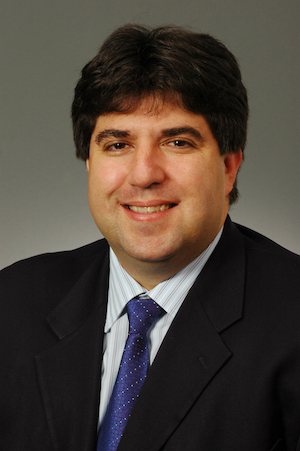
A team of George Mason University scientists has a role in the White House Cancer Moonshot Initiative, and their work could help in the mission to reduce cancer rates in half over the next 25 years.
The U.S. government is partnering with researchers to reduce cancer deaths by bringing together a large community of patients, advocates, researchers and clinicians.
Researchers from the Center for Applied Proteomics and Molecular Medicine (CAPMM) within Mason’s College of Science are working on a molecular profiling technology that would better identify the most effective drugs in the fight against specific cancers.
“I think it’s very realistic to reduce cancer death rates in half in 25 years,” said Emanuel “Chip” Petricoin, a University Professor and the co-founder and co-director of CAPMM.
Petricoin cited better technologies and approaches for early detection, a growing cadre of targeted therapeutics and immunooncology drugs that are precision-tuned for specific individuals, and the democratization and commoditization of molecular profiling that allows patients to get therapies tailored to their specific needs as the reasons for his optimism.
The development of the Reverse Phase Protein Array (RPPA) as part of the Applied Proteogenomics OrganizationaL Learning and Outcomes (APOLLO) network is helping to prepare patients for therapy in future versions of the trials.
His team’s unique approach and a Clinical Laboratory Improvement Amendment (CLIA)-certified laboratory are two big reasons why Mason’s CAPMM team has been continuously funded by the Department of Defense’s Apollo Moonshot project for the past four years, Petricoin said.
The CAPMM team has a new initiative to develop a far less invasive “liquid biopsy” assay technology platform that requires a blood sample rather than a tumor biopsy to provide specific drug target information that will better fight the cancer.
Petricoin likes the direction in which he sees the research headed and says the only potential obstacle would be convincing insurance companies and pharmaceutical companies to pay for and provide the drugs at no cost for those trials.
“I can easily see cancer death rates even falling by 80 to 90% in 25 years compared to now,” he said. “I predict most cancer will become a chronic disease, managed like we do with other diseases, like diabetes.”
Chip Petricoin can be reached at epetrico@gmu.edu.
For more information, contact John Hollis at jhollis2@gmu.edu.
About George Mason
George Mason University is Virginia’s largest public research university. Located near Washington, D.C., Mason enrolls nearly 40,000 students from 130 countries and all 50 states. Mason has grown rapidly over the past half-century and is recognized for its innovation and entrepreneurship, remarkable diversity and commitment to accessibility. Mason celebrates 50 years as an independent institution. Learn more at www.gmu.edu.
